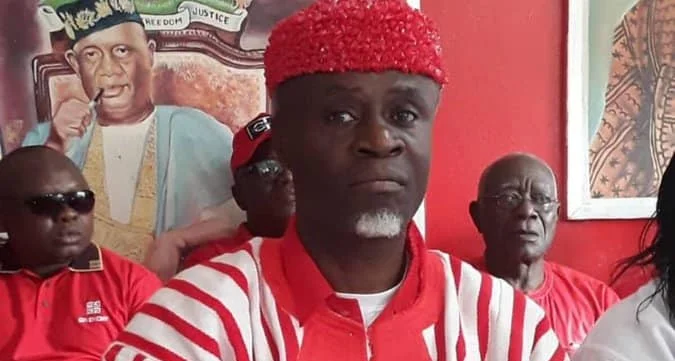By Alex Casey
Mexico recently passed sweeping judicial reforms. These reforms, which are to be phased in between 2025 and 2027, include various elements including a relaxation of the required qualifications for judicial service, shorter tenures, reduced salaries, and new oversight bodies. But by far the most consequential change is the introduction of judicial elections, which will make Mexico the first country to directly elect almost all its judges. (The elections will not be fully open, however, as the slate of candidates for each judicial position will be determined by evaluation committees, subject to veto of particular candidates by the executive, the legislature, and the judiciary.) Although proponents advanced many arguments in favor of this “high-stakes experiment,” anticorruption featured prominently. Indeed, the introduction of judicial elections was championed by former President López Obrador and his Morena party as a way to rid the Mexican judiciary of corruption by making judges responsive to the people, rather than big business or organized crime.
Judicial corruption is indeed a serious problem in Mexico. Bribery is commonplace in local and state courts, and also occurs, though not as frequently, in federal courts. Reportedly, large tax cases “get decided with a phone call or bag of money,” while the outcomes of criminal cases are often manipulated through “a combination of both fear and bribery.” But introducing judicial elections is unlikely to ”cleanse the judicial system of corruption”, and may actually make the corruption problem worse:
Read more: Judicial Elections Will Worsen, Not Alleviate, Mexico’s Judicial Corruption Problem
- First, the idea that judicial elections can help reduce corruption is premised on the notion that voters will be able to make informed choices among candidates running for judicial positions and reject those thought to be corrupt. This assumption is likely mistaken, given that voters are unlikelyto research the hundreds of relatively unknown candidates for each judicial position up for election. (To provide a sense of scale, it has been suggested that in Mexico City alone, each voter may ultimately be required to name their preference on 169 federal and 404 local ballots, from over 2,000 candidates.) Moreover, the electorate will be without any informative voter shortcuts such as political affiliations or qualifications. In such low-information elections, uninformed voters may be influenced by “manipulat[ive] campaigns with misinformation and microtargeting,” which give powerful interests and criminal groups a way to ensure that their preferred candidates are elected.
- Second, the judicial elections themselves may become a source of corruption. Organized crime groups will likely manipulate the process through vote buyingand violent threats, practices not only associated with Mexican elections historically, but as recently as 2024’s general election. Additionally, candidates in contested judicial elections will presumably need to campaign (formally or informally), but the law bars candidates for judicial office from outside financing for their campaigns. This restriction will likely tempt candidates to seek secret funding from corporations and cartels, with such candidates then potentially “in their pocket” going forward. Criminal groups may also push their own indebted or loyal candidates, as often occurs at local levels.
- Third, judicial elections may lead to the mass appointment of inexperienced judges who are at greater risk of corruptive influence than their experienced counterparts. In the words of the US Ambassador to Mexico, the reform will “make it easier for cartels and other bad actors to take advantage” of inexperienced judges; similar concerns have been raised by the UN Special Rapporteurand nonpartisan independent institutions.
It is true that some countries with low corruption, such as the United States, Switzerland, and Japan, make use of judicial elections for some judges. But these systems are very different from Mexico’s, and are not without their own issues. The closest precedent for Mexico’s experiment with judicial elections may be Bolivia, which introduced judicial elections for its highest-ranking courts in 2009. This reform has been an “abject failure.” Bolivian voters do not have sufficient information about judicial candidates, as demonstrated by the fact that most voters in these elections turn in blank ballots in a country with mandatory voting. And those that do vote seem strongly influenced by irrelevant factors such as the order in which candidate names appear on the ballot. Additionally, the role of the government in shortlisting candidates, a feature of both the Mexican and Bolivian reforms, proved “acutely vulnerable to political interference” in Bolivia. There is now a growing demand for Bolivia to consider returning to merit-based appointments. In short, Bolivia’s experiment with judicial elections failed to make the courts less corrupt, and there is no reason to believe Mexico will fare better. To the contrary, the greater scale of the Mexican reform likely exacerbates such concerns.
There is simply no foundation for the belief that judicial elections will reduce judicial corruption. Even if this judicial reform was well-intentioned (a point of some dispute), the reform is unlikely to have the desired anticorruption effect. This is not to deny that the judicial corruption problem in Mexico is serious and needs to be addressed. But, as the UN Special Rapporteur put it, the “obvious thing to do” to reduce corruption is to strengthen existing bodies, rather than “eliminating one system and replacing it with another.”













